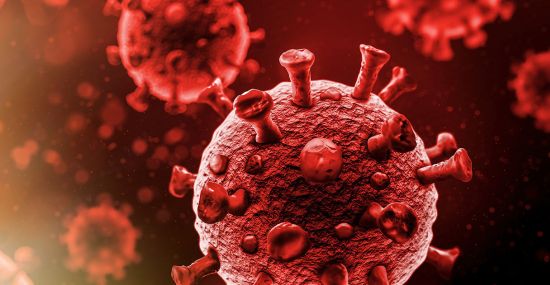A Gut Feeling About HIV and Heart Disease
Q&A With Cedars-Sinai Researcher Ivan Vujkovic-Cvijin, PhD
7-Nov-2024 10:20 AM EST, by Cedars-Sinai

Research by Cedars-Sinai investigator Ivan Vujkovic-Cvijin, PhD, is shedding light on the relationship between gut microbiota, HIV and heart disease.
LOS ANGELES (Nov. 7, 2024) -- Ivan Vujkovic-Cvijin, PhD, is a pioneer in the study of the gut microbiota and the surprising ways these microorganisms living in our digestive tracts affect our overall health. His discoveries have been featured in Nature, Science Translational Medicine, Cell Reports and other top scientific journals.
In his latest achievement, he landed a $2.7 million, five-year grant from the National Institutes of Health to investigate whether microbiota dysfunctions are contributing to the elevated risk of hypertension in HIV patients.
“Vujkovic-Cvijin exemplifies the energy and ambition of Cedars-Sinai’s research scientists,” said David Underhill, PhD, chair of the Department of Biomedical Sciences at Cedars-Sinai, where Vujkovic-Cvijin is an assistant professor in the Karsh Division of Gastroenterology. “His highly innovative and pioneering studies underlie the importance of his scientific work.”
The Cedars-Sinai Newsroom recently sat down with Vujkovic-Cvijin to learn more about his work and how his findings could potentially help patients
How does the gut microbiota influence other bodily systems and processes?
The gut microbiota is the community of trillions of bacteria, fungi, viruses and other microbes that live in our digestive system. These microbes play a critical role in keeping us healthy by supporting immune function, keeping harmful microbes at bay and by breaking down our food. The breakdown of foodstuff can have potent effects on several systems within our body. One key example is the microbial breakdown of dietary fiber. Gut microbes convert fiber into molecules known as short-chain fatty acids, which are thought to provide wide-ranging health benefits, including tamping down overactive immune cells, strengthening our gut lining and preventing high blood pressure, or hypertension.
What is different about the gut bacteria in people with HIV, the virus that causes AIDS?
The gut microbiota of these patients is altered in various ways, particularly in a reduced ability to metabolize fiber into short-chain fatty acids. A decrease in microbes responsible for this process could be one of the reasons that people with HIV, even on therapies that nearly eliminate the virus, continue to experience immune-related diseases including hypertension.
Can you share with us some of the direction of your current research?
First, we want to learn if the problem with metabolizing fiber might help explain why hypertension and cardiovascular disease occur at substantially greater rates in patients who have been treated for HIV. We plan to investigate the dynamics of fiber metabolism and uptake in people living with HIV and the role that these processes may play in producing cardiovascular illness.
Second, we want to use our findings to explore how we might restore the capacity for fiber metabolism in HIV patients to enhance production of short-chain fatty acids. Our methods will include animal models, computational biology and an array of powerful “omics” technologies, which enable us to process large amounts of biological data.
How could this research help patients?
Understanding how an altered gut microbiota may contribute to cardiovascular diseases will be important for designing new ways to possibly prevent these illnesses in people living with HIV or to reduce their severity. People with HIV often have endured a lot. We want to help them live long and healthy lives.
In addition, because HIV patients experience heightened rates of aging-related diseases, our findings may be broadly pertinent to the biology of healthy aging in the general population.
What is the next step in this research?
We will seek to identify dietary components that we could use to help reverse some of the cardiovascular risks in people with HIV. It would be a huge advance if we could help HIV patients reduce their chances of developing heart disease by adjusting their gut microbiota or their diets.
Research reported in this news release was supported by the National Heart, Lung, and Blood Institute of the National Institutes of Health under Award Number DP1HL174182.
Read more on the Cedars-Sinai Blog: Enzyme Targeted by Coronavirus Influences Gut Inflammation
Source: Newswise
https://www.newswise.com/articles/a-gut-feeling-about-hiv-and-heart-disease
For more HIV and AIDS News visit...
Positively Positive - Living with HIV/AIDS:
HIV/AIDS News
|